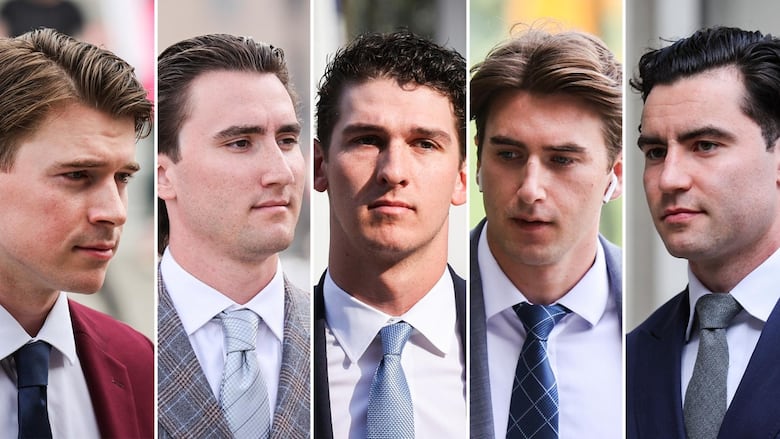Thunder Bay's hockey community reacts to the Hockey Canada trial
The not guilty decisions in the sex assault trial generate deep reflections in the city

The Hockey Canada sexual assault trial for five former world junior hockey players is over, with all being found not guilty, years after the case came to prominence.
Executive director of Faye Peterson House, a woman's shelter in Thunder Bay, Debbie Zweep says that the verdict was symptomatic of wider issues related to violence against women.
"Disappointment would definitely be an understatement, although not unexpected," Zweep told CBC News. "The system has been letting women down in sexual violence or intimate partner violence for a very long time."

"They don't report because of this, because the system doesn't believe them," she says. "Why would you go through 9 days of testimony? Why would you do any of those things when you know the outcome is almost likely to result in a not guilty?"
Cleaning up sport
Sexual assault is not just an issue in hockey, but in all sports, according to a prominent member of Thunder Bay's sports community.
"It's all sport that we're really looking at here," Sutherland says. "It makes me consider that there's a lot of work for us to do as sport leaders, as people that are coaching, as officials, as administrators, to clean up the culture of sport and make sure that it's safe and inclusive for all participants."
As for Tammy Reynolds, president of the Thunder Bay Women's Hockey Association, she says that there needs to be a change in the culture around leadership in the sport.
It's about encouraging character and morals and ethics within our organization.- Tammy Reynolds
"There's still a lot of male coaches in women's hockey, so I think it's about getting some more female leaders," Reynolds says. "We're looking at adopting policies and creating them so that our members feel safe, when they go to the rinks and reporting, and not standing by if they see anything happening."
"It's about encouraging character and morals and ethics within our organization."
Stressing moral ethics
For Sutherland, part of cleaning up sport is in its teaching of value systems. That starts with the players, the majority of whom don't go on to a professional career.
For Zweep, it's about changing our attitudes toward women more broadly so that they feel empowered to report these crimes. According to Statistics Canada, only 6 per cent of sexual assaults are reported by victims.
"Look at the statistics. People don't report," Zweep says. "When we talk about victims, I want to say that if you know someone in your life that has been a victim, listen to them, believe them, support them, comfort them and get them to us."
With files from Sarah Laws and CBC News

